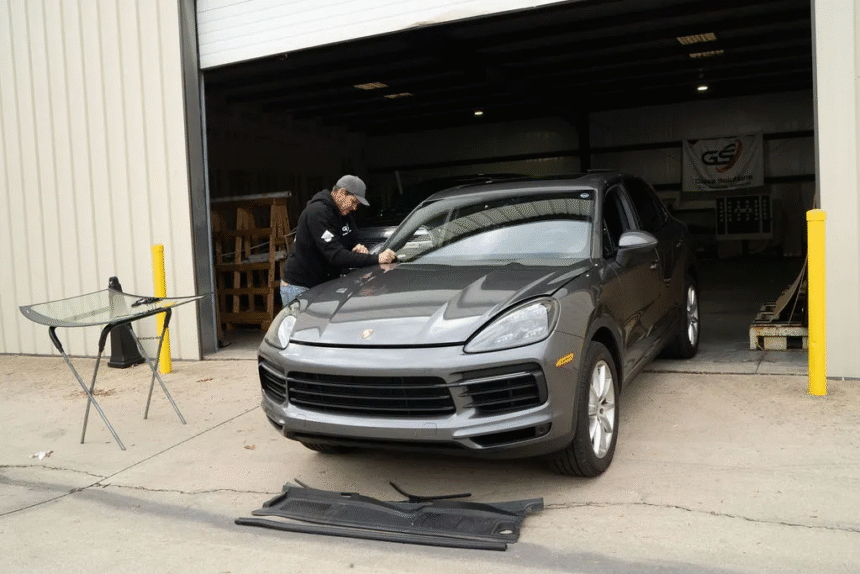Auto glass damage is one of the most common vehicle issues drivers face—especially in states like Michigan where fluctuating weather, highway construction, and road debris are daily occurrences. When your windshield cracks or shatters, your first concern is safety. Your second? The cost. Fortunately, many insurance policies cover windshield repair or replacement. The challenge is choosing a repair shop that works with your insurance, not against it.
Not all auto glass shops are equipped or willing to handle the nuances of insurance billing. Some may leave you to deal with paperwork. Others may charge upfront and require you to seek reimbursement. But there are shops that make the entire process seamless—helping you file a claim, minimizing your out-of-pocket expense, and making sure everything is compliant with your insurer’s requirements.
Here’s how to choose the right one.
1. Look for Shops That Are Approved or Preferred by Insurance Providers
Insurance companies often maintain a network of “approved vendors” or “preferred partners”. These are businesses that meet the insurer’s quality standards and billing systems. Choosing a shop from this list can:
- Speed up the claims process
- Reduce paperwork
- Lower the risk of claim denial
That said, you’re not required to use a preferred vendor. By law, you’re entitled to choose any repair shop. Just make sure they are willing and able to work with your insurer.
2. Ask If They Handle Insurance Claims Directly
The best auto glass repair shops will handle the insurance process from start to finish. They should:
- Verify your coverage details
- Contact your insurance company
- Help initiate the claim
- Submit all required documentation
This takes the burden off your shoulders and ensures all repair costs are accurately recorded.
If a shop asks you to call the insurance or file all paperwork yourself, it’s a red flag.
3. Clarify the Deductible Policy
Comprehensive insurance usually covers windshield damage, but you may still have a deductible. A reputable glass repair shop will:
- Explain if your deductible applies
- Tell you whether the repair is fully covered
- Help minimize out-of-pocket costs
Some shops even offer specials for out-of-pocket customers. For example, a Michigan-based provider is currently offering a $99 windshield replacement for customers without glass coverage. That’s a cost-effective solution for anyone facing a high deductible or a denied claim.
4. Make Sure They Use Insurance-Approved Glass
Some insurance companies require that the repair shop use OEM (Original Equipment Manufacturer) or OE-equivalent glass. Using substandard or non-approved materials can result in claim issues or even void coverage.
Ask the shop if they use insurance-compliant materials and whether their technicians are certified for installation and recalibration (important for ADAS-equipped vehicles).
5. Read the Warranty Policy
Does the repair shop guarantee their work? If they don’t, and something goes wrong later, you could be stuck footing the bill again—even if your insurance originally paid for the repair.
Many top-tier shops provide lifetime warranties on both workmanship and materials. This is an extra layer of protection that also reassures your insurer that the job was done right.
6. Verify Turnaround Time
Insurers like to close claims fast. A shop that can offer same-day or next-day service is often preferred by both insurance companies and drivers. Look for:
- Quick appointment availability
- Mobile repair options
- Efficient claim processing
Some shops even send technicians to your home or workplace for added convenience.
7. Check Customer Reviews and Insurance Experience
Online reviews often reveal how well a shop handles insurance claims. Look for feedback like:
- “They handled everything with my insurer.”
- “No paperwork headaches.”
- “Insurance paid directly to the shop.”
These are good signs that the business is experienced and efficient in dealing with insurers.
8. Consider Their Communication and Transparency
A trustworthy shop will keep you informed. From explaining how your policy applies to discussing timeframes and costs, clear communication matters.
Beware of:
- Vague pricing
- Dodged questions about coverage
- No mention of ADAS recalibration if your car has it
Good shops understand that insurance-funded repairs should still meet the highest safety and quality standards.
Conclusion
Choosing an auto glass repair shop that works seamlessly with your insurance is more than a convenience—it’s a way to protect your time, your money, and your safety. The right provider will understand the claims process, use approved materials, and prioritize both quality and compliance.
Because when it comes to auto safety, compromise shouldn’t be part of the equation.














